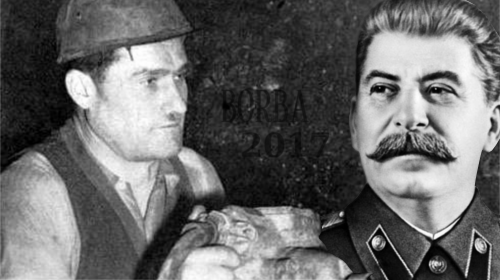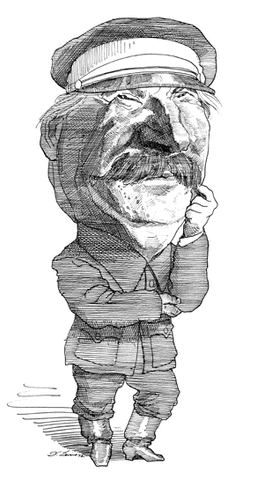
The work required very little, other than taking readings on the temperatures and barometers on an hourly basis. Shifts lasted anywhere from twelve to fifteen hours. This work involved either day or night shifts, depending on the week. In return he was scheduled to work three days a week. He was given a room beneath the observatory and a nominal salary.

It was not much, but the position gave Jughashvili a roof over his head and a small salary. Jughashvili’s connection was a friend from his hometown of Gori working at the Tiflis Meteorological Observatory. Like many a jobseeker he used a connection to help him find employment. Jughashvili was a young, unemployed man with little to no career prospects. At this point a revolution seemed far off in the future. In 1899 he was Iosif Jughashvili, a young itinerant Georgian who needed a place to live and steady source of income. He had a much better chance of ending up a panhandler on the streets of Tiflis (Tbilisi, Georgia) or becoming a petty criminal. At the time of his 21 st birthday, Stalin faced an uncertain and difficult future. As a young man, he had an excess of ambition, but little idea of where this would lead him. Meteorology seems a strange career field for a man who would eventually change the world, but this was long before Stalin became leader of a superpower. On The Fringes Of Society – Living For The Revolution

The Tiflis Meterological Observatory where Iosif Jughashvili (Josef Stalin) held his only formal job This helps explain why Stalin became a weatherman. The only regular job he ever held was nothing more than a means for providing him the time, money and lodging to continue working towards revolution. Josef Stalin was no different in this respect. Everything in a revolutionary’s life was subordinate to the ultimate cause. Whatever the job, as long as it allowed a revolutionary enough time to further their true profession, it could be considered adequate. It could also come from holding odd jobs which had very little if anything to do with subversive activities. Their pay might come from wealthy sympathizers or armed robbery.

It was not like revolutionaries actually got paid by the hour.

To do this, meant procuring enough money just to keep going. Such a career choice meant danger, irregular hours and earning a living anyway possible. Long before Josef Stalin became one of the most powerful and deadly men in world history he was an itinerant revolutionary.


 0 kommentar(er)
0 kommentar(er)
